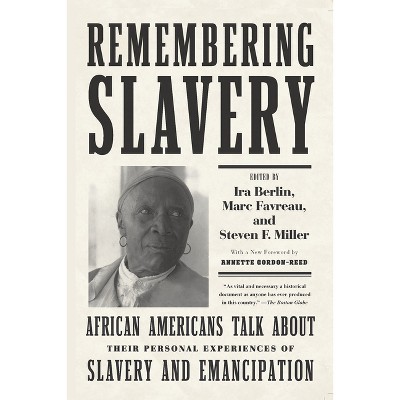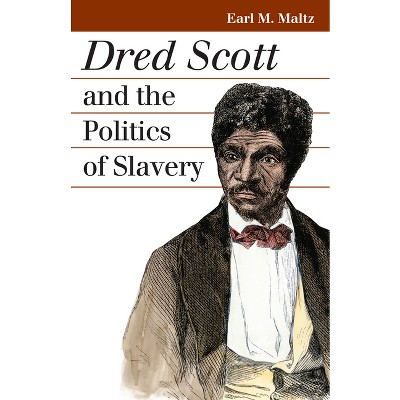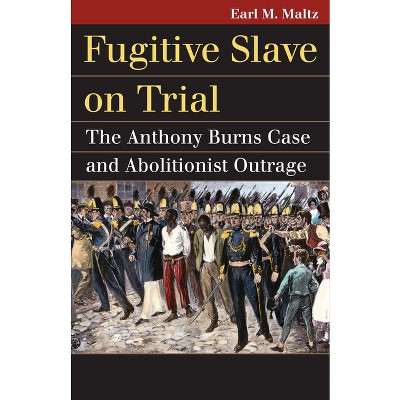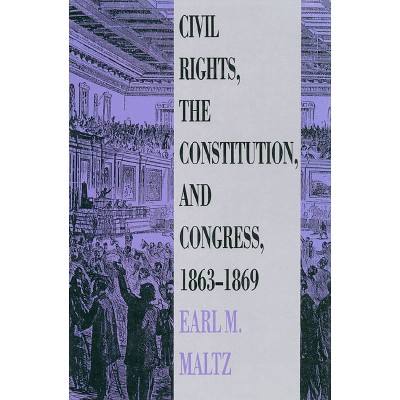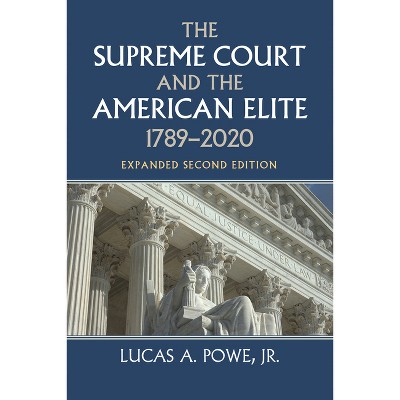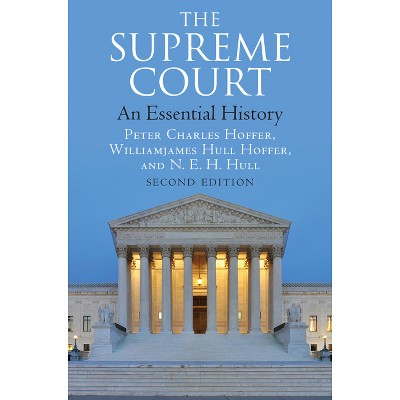Sponsored

Slavery and the Supreme Court, 1825-1861 - by Earl M Maltz (Hardcover)
In Stock
Sponsored
About this item
Highlights
- During America's turbulent antebellum era, the Supreme Court decided important cases--most famously Dred Scott--that spoke to sectional concerns and shaped the nation's response to the slavery question.
- Author(s): Earl M Maltz
- 384 Pages
- History, United States
Description
About the Book
The first book to provide a comprehensive examination of all eight major slavery cases that came before the Supreme Court. Identifies the political and legal forces that shaped the judicial outcomes and argues that, Dred Scott aside, the Court was not, in fact, proslavery.Book Synopsis
During America's turbulent antebellum era, the Supreme Court decided important cases--most famously Dred Scott--that spoke to sectional concerns and shaped the nation's response to the slavery question. Much scholarship has been devoted to individual cases and to the Taney Court, but this is the first comprehensive examination of the major slavery cases that came before the Court between 1825 and 1861. Earl Maltz presents a detailed analysis of all eight cases and explains how each fit into the slavery politics of its time, beginning with The Antelope, heard by the John Marshall Court, and continuing with the seven other cases taken before the Roger Taney Court: The Amistad, Groves v. Slaughter, Prigg v. Pennsylvania, Strader v. Graham, Dred Scott v. Sandford, Ableman v. Booth, and Kentucky v. Denison. Case by case, Maltz identifies the political and legal forces that shaped each of the judicial outcomes while clarifying the evolution of the Court's slavery-related jurisprudence. He reveals the beliefs of each justice about the morality of slavery and the judicial role in constitutional cases to show how their actions were determined by a complex interaction of political and doctrinal considerations. Thus he offers a more nuanced understanding of the antebellum federal judiciary, showing how the decision in Prigg hinged on views about federalism as well as attitudes toward human freedom, while the question of which slaves were freed in The Antelope depended more on complex fact-finding than on a condemnation of the slave trade. Maltz also challenges the view that the Taney Court simply mirrored Southern interests and argues that, despite Dred Scott, the overall record of the Court was not particularly proslavery. Although the progression of the Court's decisions reflects a change in the tenor of the conflict over slavery, the aftermath of those decisions illustrates the limits of the Court's ability to change the dynamic that governed political struggles over such divisive issues. As the first accessible account of all of these cases, Slavery and the Supreme Court, 1825-1861 underscores the Court's limited capability to resolve the intractable political conflicts that sharply divided our nation during this period.Review Quotes
"A highly readable, useful, and bound-to-be controversial book."--Civil War Book Review
"An admirable guide to a period of judicial history when men, women, and children were property."--Choice
"Through his nuanced yet digestible treatment of slavery and the Court, Maltz has produced what will undoubtedly endure as the definitive text on this subject."--Reviews in American History
"An impressive contribution. . . . One of the most important books published on this topic. Detailed and accessible, this work is highly recommended for all undergraduate, graduate, and law school libraries; it is sure to become widely adopted for advanced university classes in legal history, slavery, history, and Supreme Court history. All future work on the legal history and jurisprudence of slavery will have to confront this work and its significant thesis."--The Journal of East Tennessee History
"This bold challenge to the acceptance by legal historians of the centrality of slavery to antebellum legal thought helps reinvigorate proslavery thought as an area of scholarly inquiry. . . . This is a dispute we will be hearing about for a long time and we must heartily thank Maltz for reinvigorating debate about the nature of slavery jurisprudence in the years leading into the Civil War."--Register of the Kentucky Historical Society
"An admirable guide to a period of judicial history when men, women, and children were property."--Choice
"Maltz's broader thesis--that there was a complex relationship between politics, the bench, and the law is amply demonstrated, and makes his book of interest to legal and political historians alike."--Kansas History
"This is legal history as it should be: dispassionate, doctrinally sophisticated, and deeply rooted in political context. It will become the standard against which are measured all other studies of the High Court's slavery cases."--Peter Charles Hoffer, coauthor of The Supreme Court: An Essential History
"Maltz sensitively combines legal analysis with attention to the political environment in which the Court operated. Everyone interested in antebellum law and politics will profit from his work."--Mark Tushnet, author of Slave Law in the American South
"A concise, understandable, and insightful overview."--Michael Les Benedict, author of The Blessings of History: A Concise History of the Constitution of the United States
"Maltz's account is lucid and nuanced, his judgments are always thoughtful and measured, and his insights are grounded in a sure understanding of the interplay among law, politics, and judging. While some will disagree with his interpretations, every serious scholar in the field must take them into account."--Donald G. Nieman, author of Promises to Keep: African Americans and the Constitutional Order, 1776 to the Present
"Comprehensive, scholarly, and lucid, Maltz's book succeeds admirably in synthesizing and interpreting the vast literature on the Supreme Court's fateful encounter with slavery, culminating in Dred Scott v. Sandford. A most welcome addition to the field."--R. Kent Newmyer, author of The Supreme Court under Marshall and Taney
Shipping details
Return details
Trending Non-Fiction








